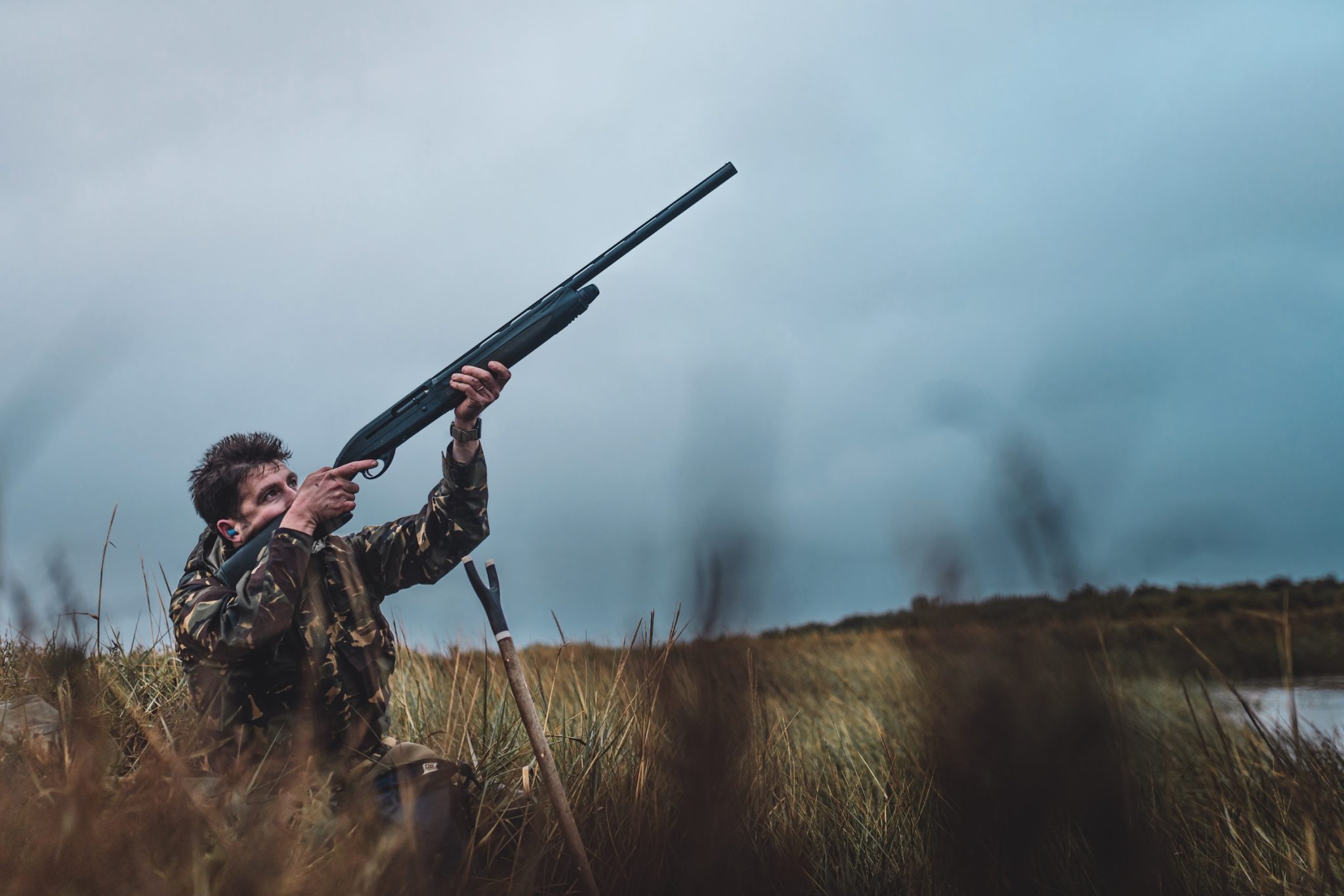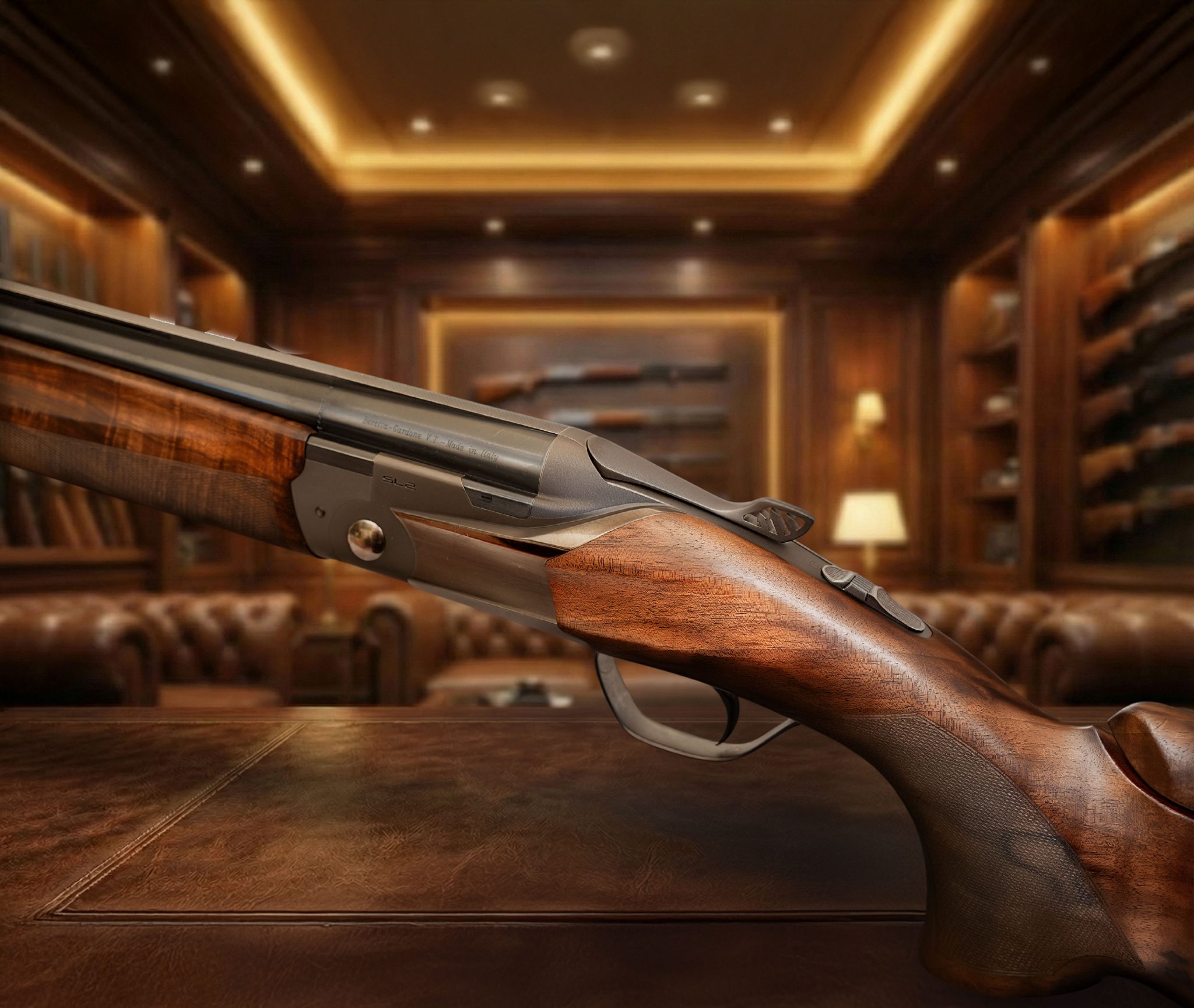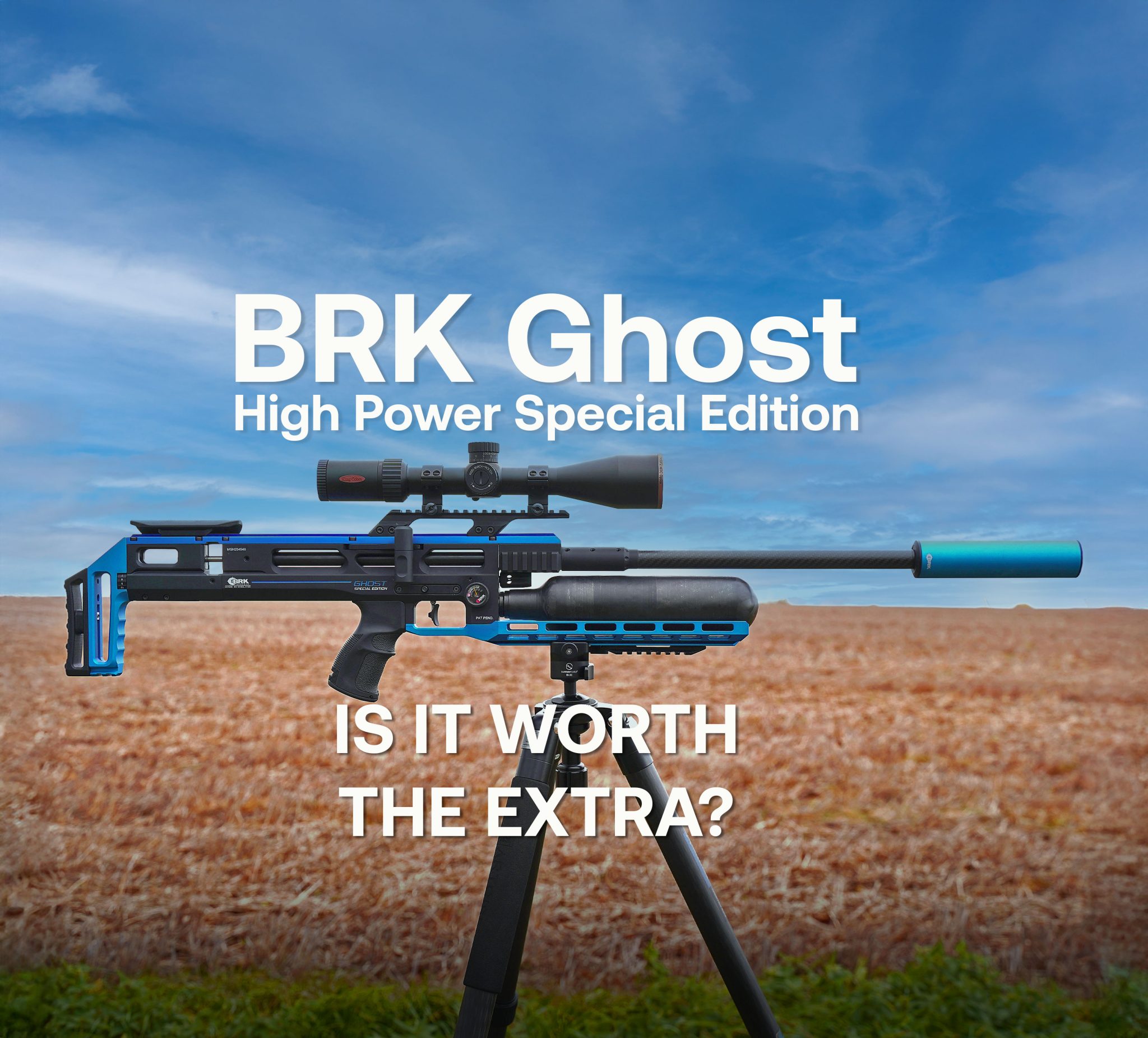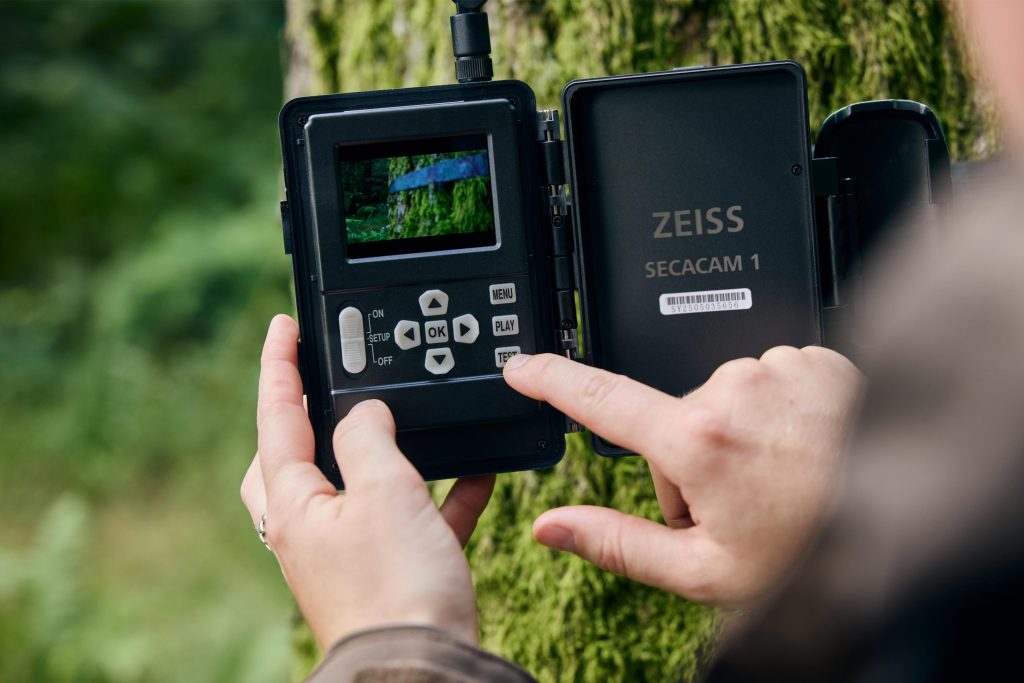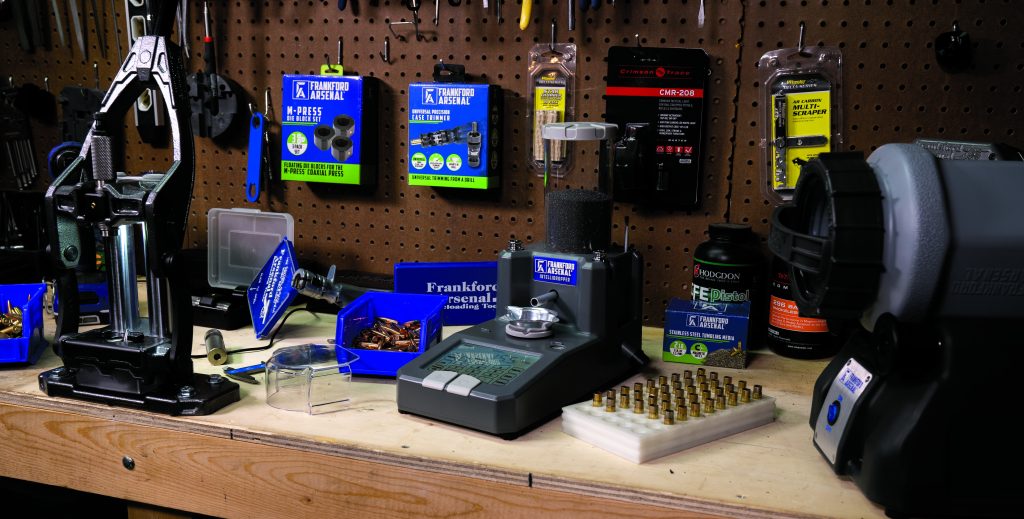The countdown is on for The British Shooting Show – book tickets online today and save on gate price!
Inside Yildiz the Turkish gunmaker
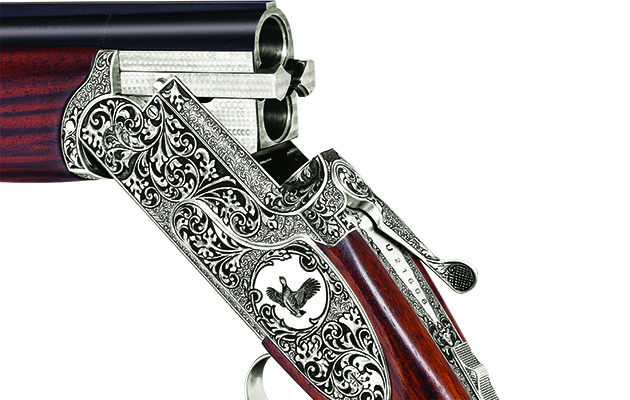
Eighty miles due north of Antalya is the small city of Burdur. Best known for its vast, ancient fishless lake, Burdur sits on a handsome plateau and is surrounded by low, stunning hills. As well as the wetlands, Burdur is also known as a centre of marble production. And now there is something else Burdur is becoming recognised for: shotguns. Some reckon them to be Turkey’s finest, and they may well be coming to a shoot near you soon. Indeed, in the past 40 years, Yildiz Shotguns – Yildiz meaning ‘star’ in Turkish – has gone from being an unknown in the world of shooting to one of the leading shotgun makers in the country.
“We have been producing shotguns for the hunting and sporting market since 1974,” explains Adem Kuzu, chairman of Yildiz, whose father set up the business. “We had a very small shop and our first product was a side-by-side.”
Soon Yildiz added semi-automatic shotguns to its range and began making over-unders in 1994. “Now we are producing 50,000-55,000 guns a year – most of them are over- unders,” adds Kuzu. The Yildiz range includes some 70 guns, priced from £260 to £2,600. “We export to 70 countries – mostly to the USA and European countries, typically the UK, France and Germany.”
Turkish guns in the UK market
In the UK, Yildiz has been having a fair blast. Through its distributor, Entwistle Guns in Preston, it now sells more than 2,000 guns a year – mainly over-unders – of which around 900 are .410s. These sell for around £600.
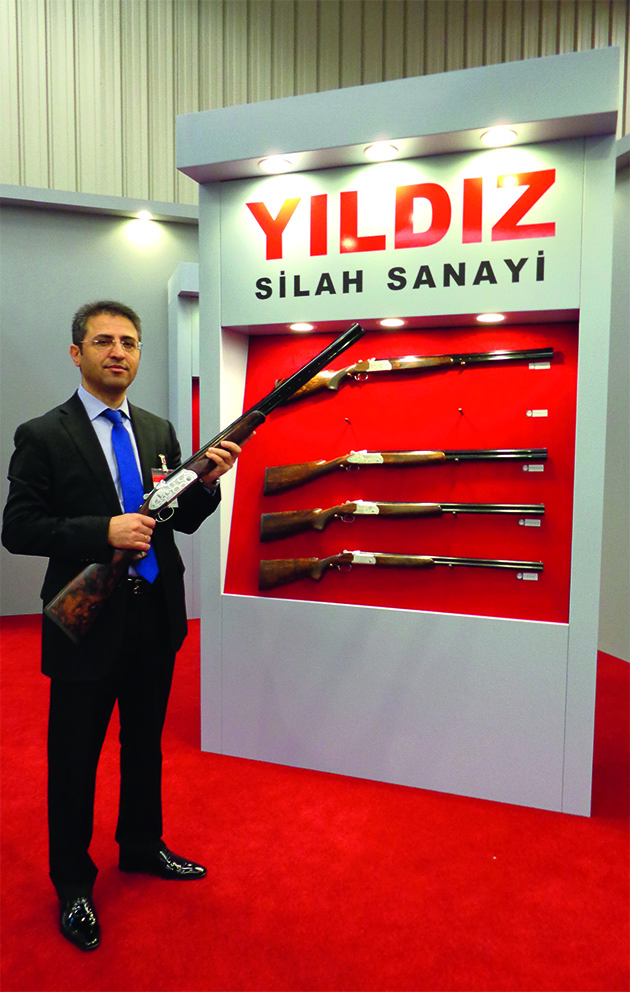
Adem Kuzu, chairman of Yildiz, whose father founded the Turkish gunmaker in the 1970s
“It’s growing,” says Kuzu of the UK business, adding that the 20 bore is also popular here. “The reputation of the company is encouraging people to buy our luxury models,” he adds. “It’s good news.” Overall, the company has been increasing sales by 10 per cent a year worldwide. Outside the US and Europe, Yildiz sells to Argentina, Brazil, Chile and Mexico.
“When you consider production variety, reliability and quality, we are in the top five in Turkey,” Kuzu states matter-of-factly. “We are best for the materials that we use and the craftsmanship. At this price we are using the best stocks in the world.”
Luxury models
Two years ago the company introduced its range of luxury models, priced at around the £3,000 mark. These boast hand-engraved metalwork and stocks hewn from fine Turkish walnut. “There is no company that uses this grade of stock at this price range,” says Kuzu.
Yildiz moved to its 3,000 square metre factory in an industrial estate outside Burdur in 1994 when Kuzu, now 45, took over the company from his father. Since then it has acquired a second 3,000 square metre factory, while the headcount has gone from 60 employees to around 200.
Today Kuzu speaks from behind a broad, spotless desk and arranged along the unit behind him is an array of awards, including one for being the highest payer of tax in Burdur.
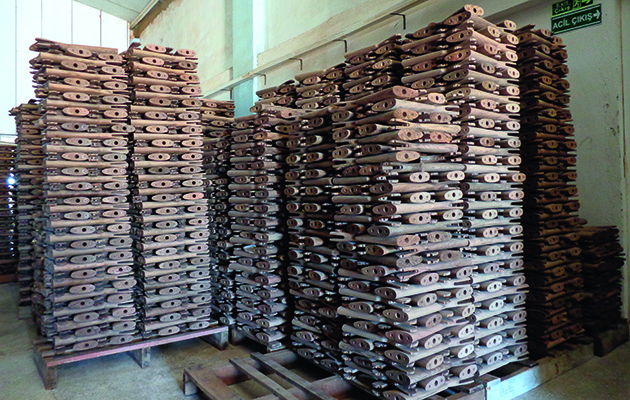
The stocks are carved from the blanks either by machine or hand
He readily concedes that Turkish gunmakers still have a reputation problem. He pulls his laptop across the desk to show me an email forwarded from a customer in Germany advertising Turkish-made pump action shotguns for $50. “This is the price for the end user,” says Kuzu pointedly. Beneath is an over-under for $130. “It’s impossible to offer this kind of price if you want a quality shotgun.”
Stepping onto the factory floor is not what you expect. Operators stand at a row of large, modern machines boxed in plastic. “This is where all the material parts are being produced for the shotguns,” explains Kuzu. “These machines come from Japan.” He shows me a box full of hundreds of glinting firing pins. “We make 2,400 of these a day.”
We stop at a crate piled high with small, roughly cut blocks of steel, all destined to become chambers. Each weighs just under one kilo.
Next there’s a pallet containing hundreds of silver-coloured steel barrels: they’re not barrels yet, they’re solid barrel-length cylinders waiting to be drilled. Beyond them, a worker in a maroon Yildiz polo shirt feeds a 30ft-long pair of steel bars into a machine that cuts them to the desired barrel length. Sparks are flying. “We use 4140 steel, which is very hard. All of them come from Italy,” says Kuzu, pointing at the long steel cylinders.
Now the cylinders are milled into hollowed tubes and balanced. Along the way, another worker mills chokes. “We produce 1,000 chokes a day because there are five chokes for each shotgun,” says Kuzu.
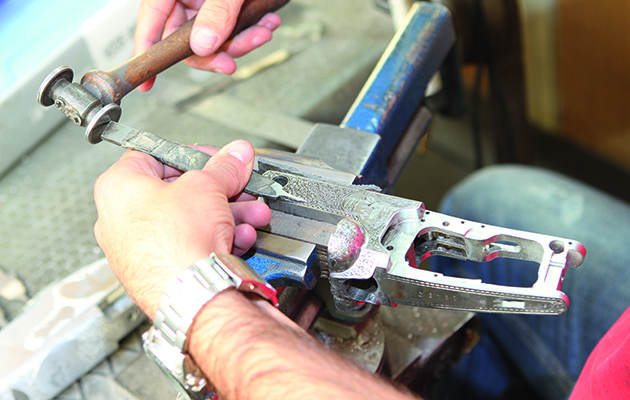
It takes around five days to complete the hand-engraving on the higher-end shotguns
A place for finer details
In a side room, a £200,000 machine is cutting tiny components for the actions of the guns in a bed of fluid reminiscent of The Matrix. These two- centimetre-long parts are destined for trigger mechanisms and look like scaled-up models of bones from the middle ear. Each is beautiful.
A stride away in the laser department, engraving is done on the side-plates and receivers of the mass- produced standard models. Several metal pieces are placed into the machine, the door is shut after them, and sparks fly as tiny birds take shape.
Upstairs, a team of five craftsmen hand-engraves receivers, frames, trigger-guards and so on for the luxury guns with meticulous care.
“It takes five days to engrave one of these models,” explains Kuzu over the sound of tapping hammers and chisels. “We have almost 60 designs to choose from but we can do as you wish.” Five per cent of Yildiz’s guns are hand- engraved in this fashion.
Along the rest of this level, men are assembling and finishing shotguns; filing at barrels in vices, or working on components as the guns come together. This looks much more like what you would imagine.
At the end there are dozens of pristine Yildiz shotguns in racks. Kuzu passes me a 12 bore over-under: it looks good, has clean if decoratively unfussy lines, and feels pleasantly weighty in my hand. The stock is handsome. “This is a standard model,” he says as I open the breech and peer through the barrels. “It comes with a five-year guarantee and costs £300.”
“We can make about 200 guns a day,” says Kuzu, though he’s keen to stress that it’s not a numbers game – his company is making more guns than it used to, but also to a higher standard. “The shotguns we produced 10 years ago were able to shoot 10,000 cartridges. Now they are able to shoot 100,000.”
How come? He thinks for a moment. “Because of improved mechanical technology and quality of our materials.”
The man behind the success of Yildiz
It’s a three-minute drive to Yildiz’s second factory site in Kuzu’s BMW. On the way I ask him what he regards as the secret behind his company’s success, because plainly the tide is going his way.
“First you have to love your job,” he says, as we turn the corner. Suddenly the hills in the distance appear beyond the rooftops of Burdur and the broad blue lake. “Of course, the engineering and the design are also important and knowledge is very important. Selecting the right materials is vital and as always it comes down to the little details. We always focus on the small details.”
Kuzu says he shoots “from time to time”, mainly pheasant and rabbit, and his gun of choice is naturally a Yildiz – the SPZ ME Special over- under 12 bore. “It’s sporty and it’s classic; it’s a nice gun,” he adds.
Quality is priceless
Kuzu stands alone in a hanger-like space filled with pallets piled high with gun blanks. There are around 100,000 in here in all, worth approximately £2.5 million. He says he’s personally chosen each of these and no Yildiz gun is made with the lowest grade one timber, they use only grades two to five.
In one corner there’s a pile of blanks under a black cloth. He pulls this back to show me his trove of timber. “This one is 300 years old,” he says, showing a gun blank covered in swirling figure. “If you wanted this stock for your shotgun,” he says, mentioning a leading Italian gunmaker, “the price you would pay would be $5,000 just for the stock.” These blanks go into Yildiz’s custom guns, which typically sell for £4,000.
In adjacent rooms, the stocks are carved from the blanks either by machine or hand, depending on the grade of the gun. Most are pistol grips, but there are some in the ‘English’ style. Along the floors, boxes filled with stocks and fore-ends in rows await the next step in production.
In the finishing room, hundreds of stocks are arranged on racks for oiling. Each receives five coats of oil with three days’ drying between coats. Kuzu plucks one stock out: “You won’t see a better stock in Turkey,” he says.
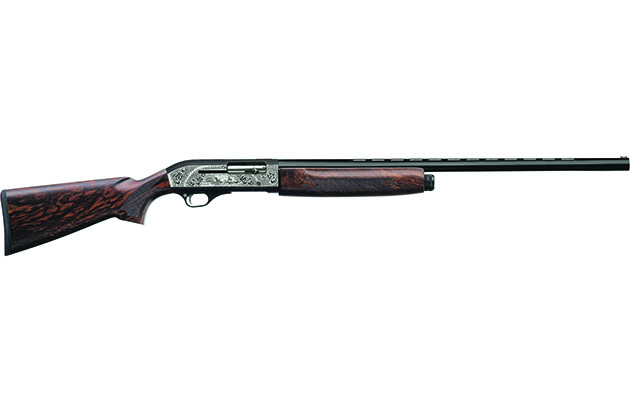
Semi-automatic shotguns have been a staple of the Yildiz range for over four decades
Upstairs, he has one more machine he wants to show me – the silver welding system for joining the barrels together. Spanning the room is the 40ft-long machine, effectively a conveyor belt that runs through a series of ovens. The welding process heats the barrels, ribs and chambers section to 900C, which Kuzu says ensures the integrity of the barrels, even if firing takes them to high temperatures. He shows me a small reel of silver wire. “That’s $5,000,” he explains meaningfully. For Kuzu, quality materials are worth paying for.
Back outside, with the tour complete, we stand in the evening sunshine and take stock.
“We want to be the first company that people think of when you say shotgun, not just in Turkey but also in the European market,” says Kuzu in a serious tone. “I feel we can achieve this by working harder and by liking our jobs, and by considering the customer demands – and, of course, by using new technology and engineering methods.”
97 per cent of each Yildiz shotgun is made in-house
Part of the Yildiz story, he believes, is its commitment to make as much of the gun as possible: 97 per cent of each shotgun is made in-house, with 90 parts going into the over-under or 72 into the side-by-side.
So does Adem Kuzu see himself as a businessman or gunsmith? “I describe myself as both,” he says. And the hands-on passion shows. He says that he hopes his daughters will one day follow him into the family business, and as we admire the view, he smiles. “We want to make Burdur famous for shotguns,” he says.
Related Articles
Get the latest news delivered direct to your door
Subscribe to Shooting Times & Country
Discover the ultimate companion for field sports enthusiasts with Shooting Times & Country Magazine, the UK’s leading weekly publication that has been at the forefront of shooting culture since 1882. Subscribers gain access to expert tips, comprehensive gear reviews, seasonal advice and a vibrant community of like-minded shooters.
Save on shop price when you subscribe with weekly issues featuring in-depth articles on gundog training, exclusive member offers and access to the digital back issue library. A Shooting Times & Country subscription is more than a magazine, don’t just read about the countryside; immerse yourself in its most authoritative and engaging publication.



